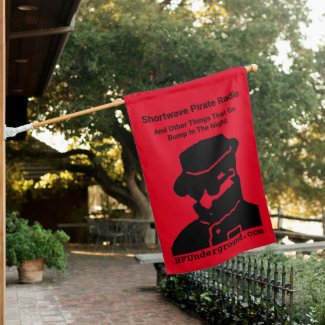# The New York Times
March 1, 2011
Judith Coplon, Haunted by Espionage Case, Dies at 89
By SAM ROBERTS
Judith Socolov, who as a diminutive Barnard graduate named Judith Coplon was convicted of espionage more than 60 years ago after embracing a utopian vision of communism and falling in love with a Soviet agent, died Saturday in Manhattan. She was 89.
Her death was confirmed by her daughter, Emily Socolov. A longtime Brooklyn resident, the elder Ms. Socolov had been living in the Bronx.
Judith Coplon was a 5-foot-tall, 27-year-old political analyst for the Justice Department when she was arrested by the F.B.I. in 1949 with the Soviet agent Valentin A. Gubitchev on a Manhattan street corner. She had been identified from intercepted Soviet cables.
But her convictions for espionage in 1949 and for conspiracy (with Mr. Gubitchev) in 1950 were overturned — in one case because federal agents overheard conversations with her lawyer, and in the other because she was arrested on probable cause but without a warrant.
Still, the United States Court of Appeals concluded that “her guilt is plain,” and Soviet documents released years later supported that conclusion.
“She was a very high priority to the F.B.I.,” John Earl Haynes, a cold war historian at the Library of Congress, said on Monday, “because she was clearly in a Justice Department office, the Foreign Agents Registration Section, that was receiving the F.B.I.’s own counterespionage reports.”
While her appeals were pending, Ms. Coplon (pronounced COPE-lon) married one of her lawyers, Albert Socolov, a decorated D-Day veteran. The court restricted their honeymoon to within 100 miles of New York City.
After the verdicts were reversed, Ms. Coplon — now Ms. Socolov — lived in obscurity, raising four children, earning a master’s degree in education, publishing bilingual books, tutoring women in prison in creative writing, and, with her husband, running two Mexican restaurants in Manhattan (the Beach House in TriBeCa and Alameda on the Upper West Side).
Ms. Socolov refused to discuss her relationship with Mr. Gubitchev, a Russian working at the United Nations, or her legal ordeal. “The subject of her innocence or guilt was something that she would strictly not address,” Emily Socolov said.
“It’s very hair-raising to read about your mother being given a code name and moved around like a chess piece,” the daughter added. “Was she a spy? I think it’s another question that I ask: Was she part of a community that felt that they were going to bring, by their actions, an age of peace and justice and an equal share for all and the abolishing of color lines and class lines?”
“If these were things that she actually did, she was not defining them as espionage,” Ms. Socolov continued. “If you feel that what you’re doing answers to a higher ideal, it’s not treason.”
Judith Coplon was born in Brooklyn on May 17, 1921, the daughter of Samuel and Rebecca Moroh Coplon, a toy manufacturer and milliner, respectively. Her great-grandfather, a peddler who had emigrated from Prussia, was a prisoner during the Civil War at Andersonville, the infamous Confederate prison camp.
Ms. Coplon won a good-citizenship award in high school and a full scholarship to Barnard, where she majored in history and was a member of the Young Communist League. She graduated cum laude in 1943, joined the Justice Department in 1944 and, according to the government, was recruited by Soviet intelligence later that year.
In 1948, after intercepting a secret three-year-old Soviet cable, the Venona project, which monitored and decoded Soviet diplomatic communications, identified Ms. Coplon as an agent code-named Sima. She “will be able to carry out important work for us in throwing light” on United States counterintelligence, the Soviet cable said.
To snare her, the F.B.I. fed her a false memorandum about atomic power, then followed her in Manhattan on March 30, 1949, with 30 agents and a fleet of radio cars. After she made a series of evasive maneuvers by subway and bus, she and Mr. Gubitchev were arrested under the Third Avenue elevated line in Midtown. Several secret documents, including the faked memo, were confiscated.
“I was never and am not a Communist,” Ms. Coplon later declared. “The only crime I can be said to be guilty of is that I knew a Russian.”
She said she had met Mr. Gubitchev at the Museum of Modern Art and fallen in love with him, only to learn he was married. “I will always say that I’m innocent and that I’m being framed,” she testified.
In 1952, after winning the right to a new trial, she remained free on $40,000 bail. The bail money was not returned until 1967, when the Justice Department formally dropped the case.
For years, though, the charges haunted her. “If she felt somebody was looking at her askance or treating her disparagingly,” Emily Socolov said, “she thought about that case.”
Ms. Socolov emerged in 1981 to defend her husband against accusations that money he had invested for a client was drug-related. He was acquitted.
Mr. Socolov survives her. Besides her daughter, Ms. Coplon is also survived by three sons, Benjamin, William and Daniel; and four grandchildren.
In their book about the case, “The Spy Who Seduced America,” Marcia and Thomas Mitchell wrote that in 1994 Albert Socolov continued to insist that his wife was innocent. But for 60 years the couple shunned publicity.
“We’ve had all kinds of requests for interviews, for books, but it has been our steady policy to refuse,” Mr. Socolov told The New York Times a decade ago. “Other people are interested in posterity. We’re not.”
David Binder contributed reporting.



